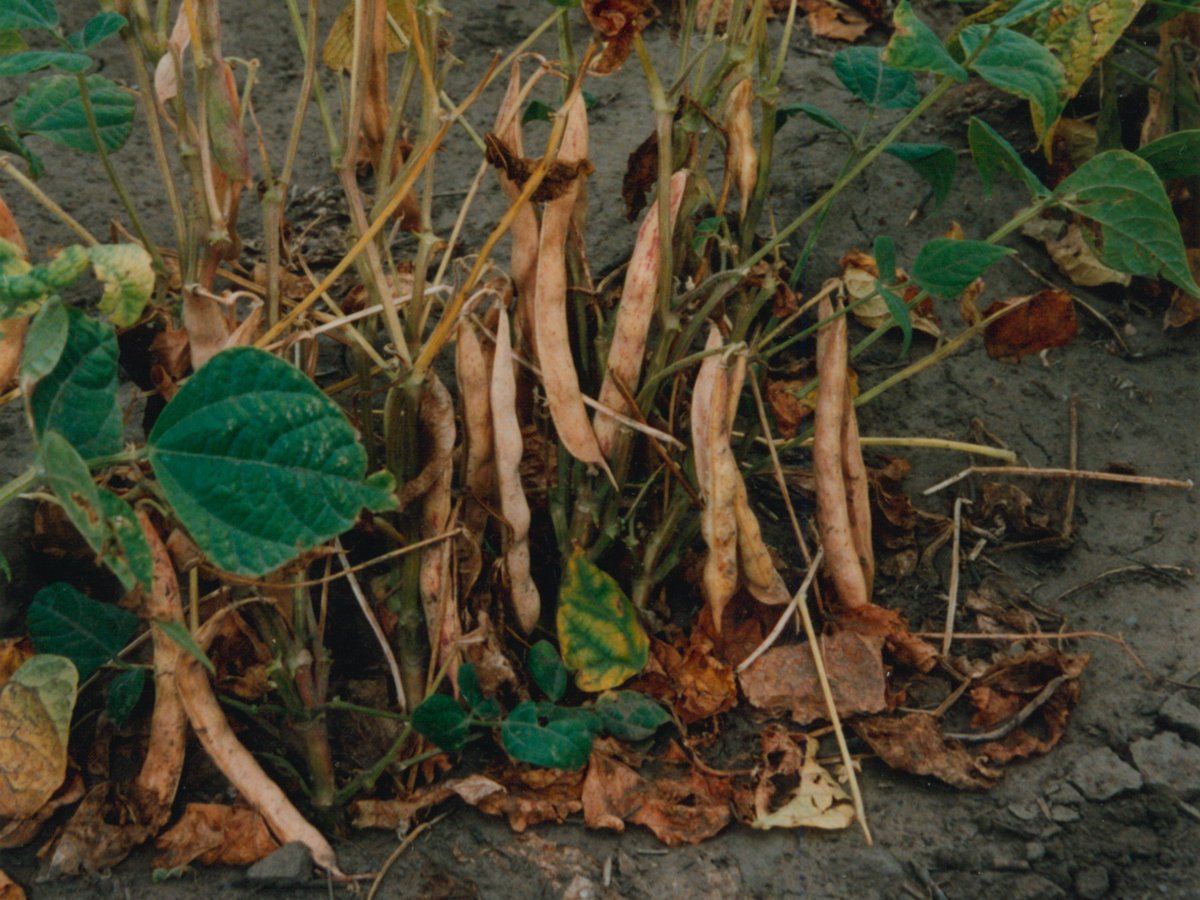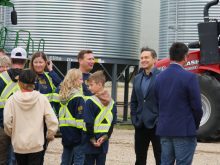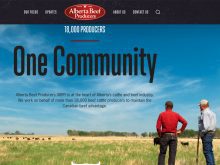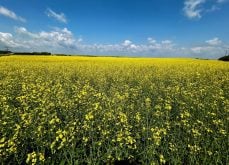Glacier FarmMedia – Dennis Laycraft, a champion for the beef industry, will be inducted into the Canadian Agricultural Hall of Fame this fall.
Laycraft, who is based in Calgary, is the executive vice-president with the Canadian Cattle Association. He is one of six people who will be inducted this year.
“I had no idea that I’d even been nominated, so it was a complete surprise,” said Laycraft, who grew up on a big ranch in southern Alberta near the Porcupine Hills.
Read Also

Dry bean seeded acreage in Manitoba hits 20-year high
Dry bean acreage across all types reached around 207,000 acres in 2025, representing a significant increase from last year’s 182,000 acres.
Laycraft’s heart has always been in agriculture. For his post-secondary education, he went to Olds College and studied livestock production.
He worked for a fertilizer and feed company for a few years, and in 1981 he joined the Alberta Cattle Commission (now Alberta Beef Producers) and worked there for nine years before joining the CCA in 1990.
Laycraft was nominated by the CCA. Both Brenna Grant, executive director of Canfax, and Ryder Lee, general manager of the CCA, said Laycraft has too many accomplishments to list.
Grant said Laycraft is being honoured for his contributions throughout his entire career.
“Those contributions are going to have a lasting impact on the industry,” she said.
“I would say that you can’t ever look at someone’s career in isolation at a certain season. It should really be looked at as a whole, and the thing that makes Dennis so deserving of this is the fact that he has consistently served industry over long term, over many years. He firmly believes in building organizations and institutions that will stand the test of time.”
Lee said Laycraft was involved with fighting countervail, creating the Beef Breeds Agency and getting the industry through BSE. He is dedicated to trade and market access and was also involved with the creation of the Canadian Roundtable for Sustainable Beef.
He was instrumental in helping create the checkoff as it exists today. The checkoff currently funds the Beef Cattle Research Council and public and stakeholder engagement.
Lee said Laycraft demonstrates principled, committed leadership around the ideas of market access and competitiveness. He is also decisive, promotes the cattle industry and brings forth solutions that will move the cattle industry forward, said Lee. Laycraft remains calm and rational under pressure.
“That has spread through the years, throughout the organization and into other organizations,” he said.
Laycraft is also known for his mentorship and leadership and helping people in the industry flourish, said Lee.
“There’s been lots of big things going on that could have went in different directions if we got to pounding the table or taking different approaches that we found solutions to thanks to Dennis’ leadership, for sure,” he said.
Lee said Laycraft is dedicated to the producer leadership at CCA and recognizes how producers are always involved in finding solutions to industry issues, such as the plant shutdowns that occurred during COVID-19.
Grant said one of Laycraft’s strengths is how he works in collaboration.
“A lot of the things he’s done have been in collaboration with other groups, so it’s not like he would ever take full credit for some of the ideas, or the implementation of so many things because so many of them are bigger than any one person. He does a lot of collaboration, both within industry as well as with government and across the sectors with other commodities,” she said.
Lee said CCA has evolved over time under Laycraft’s leadership. He has managed to build and enhance the staff at CCA and bring them along to work on major issues.
“I’ve seen different things where the benefit has been the recognition that we don’t have the right expertise leaning in that we need. We need to go and find that and make sure it’s coming to the plate,” said Lee.
“It’s a good thing that cattle producers have come together and put the resources in or have been called upon to put extra resources in, to bring that expertise to the table that we know we don’t always have.”
Grant said she has worked in a division of CCA for 18 years, and Laycraft has always provided direction but also given staff the space to own their files, run with them and make them their own.
“I’ve been able to bring a number of strong staff into the organization, and that’s something I’ll always feel quite proud of, and the work they’ve done as well,” Laycraft said.
“It’s never one person. It’s a team. When you hire exceptional people, I often say, ‘when you have many bright lights, they all shine together.’ ’’
Trade access is one of Laycraft’s areas of interest.
Since he started at CCA, Laycraft has had to work through multiple Canada-U.S. trade agreements and issues, building up the export-oriented industry and the yearly round of trade negotiations, said Lee.
“The move to a rule-based global trading system and being export oriented isn’t something that we arrived at by accident. It was very purposeful. And then the challenge to that in 1999 was the U.S. countervail case, which was enormous, and we won that thing,” said Lee.
“I think the thing about trade cases is not everybody knows the federal government isn’t keen to fight these things. It takes convincing that it can be won, that it should be fought and that it will be worth the time and resources of doing that. Winning that was key to moving our industry forward.
“We’re not a high cattle population country, but boy, the product we put out into the world competes with the best, and we compete into the U.S., into Japan and South Korea, and we’re right there because of some of the things that we’ve built up, and Dennis’ fingerprints are on so many of them.”
In the 2000s, mandatory country-of-origin labelling became an issue, and there were a lot of people who had to fight against it for the success of the industry. Other major issues were the disastrous drought in 2002.
Laycraft said the biggest issue the cattle industry has ever faced was BSE, which began in May 2003 and affected the industry for years.
In the 2010s, the CCA needed to have the vision and see where the world was going on the environmental file, and that led to the creation of the Canadian Roundtable for Sustainable Beef. CCA staff fully dedicated themselves to investigating environmental sustainability for producers.
Laycraft is a family man, said Lee, and so thanks need to be given to his wife, Libby, as well as his son and daughter.
“He’s also able to bring those family values to CCA. We work for family values people, but we’re also able to do that as an industry, and thanks go to his family for carrying that all the way,” said Lee.
Laycraft plans to scale back next year but will still be working on trade issues.


















